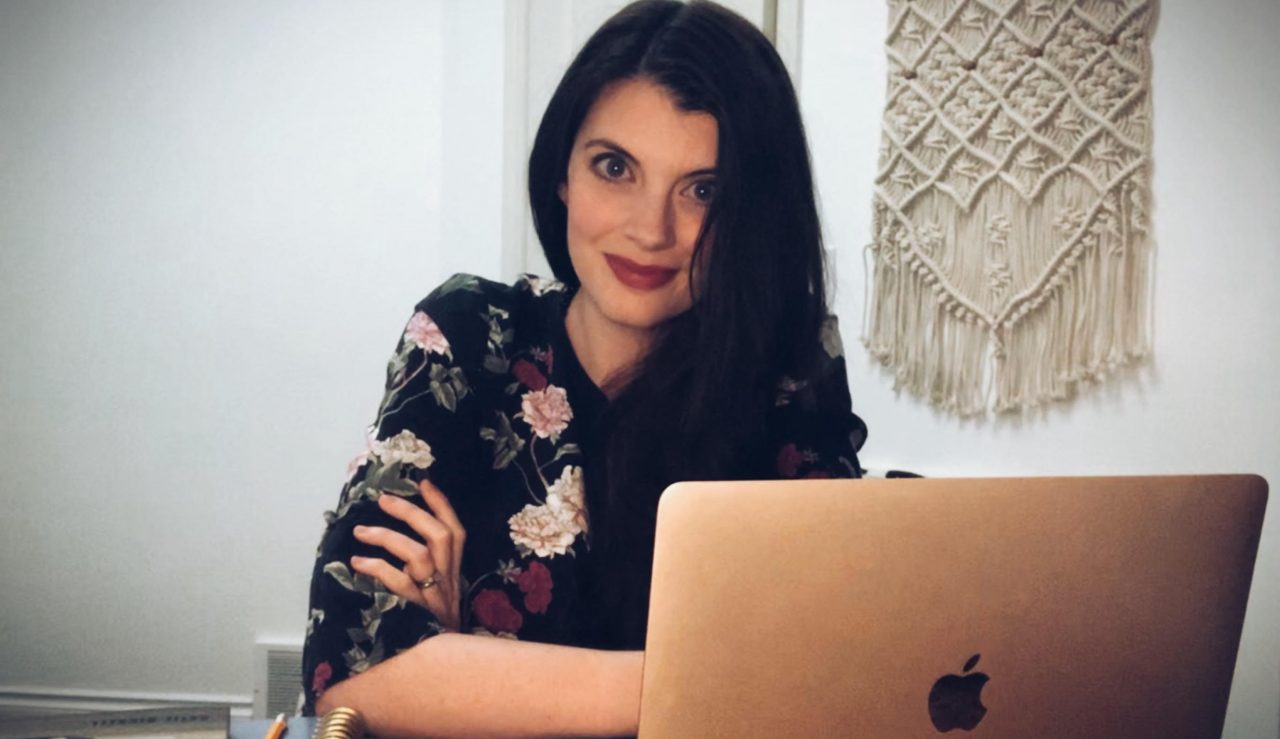Katie Bickell may be an expert at writing short, but her list of accolades is long.
The Alberta author’s debut book, Always Brave, Sometimes Kind, a novel in short stories, spans 26 years in her hometown province, interlocking the disparate lives of everyday people. Early chapters won her several prizes, including the prestigious 2015 Howard O’Hagan Award for Short Story.
It takes guts to write short but, as Katie knows, it takes true courage to cut your word count while editing, too.
If you want to get better at brevity, sign-up for her 90-minute workshop Packing a Punch: Big Stories in Small Spaces. (Tickets are $20 CAD and available until Tuesday, 12pm ET. Register here.)
On top of that, her class includes a Flash Fiction contest with a $100 prize!
Ahead of her class, on Tues., Mar. 23 at 1pm ET, we asked Katie about our short attention spans and the worst over-writing mistakes. We also put her brevity skills to the test.
In 25 words or less, tell us: what are the benefits of writing short?
Writing short is the best way to learn to write long. If you don’t know how to pack 300 words, your novel’s going to draaaaaag.
Truthfully, I don’t think the book could be anything but a novel-in-linked-short-fiction, and part of me still feels a creepy sense of guilt for not giving all the characters their turn.
Your novel, Always Brave, Sometimes Kind, is told in linked short stories. Why did you make that format choice?
Always Brave, Sometimes Kind was always a collection of short stories. The format wasn’t something I necessarily “chose”; it was just that these compact scenes kept rushing to me. At the risk of sounding a little “woo-woo,” these stories came to me almost fully formed. It was as if each character was whispering over my shoulder. Their voices were so complete. As soon as I finished a tale, another character from the recently finished story would pipe up, “Hey, what about me?”
My editor and publisher, approaching the book from a marketing perspective, insisted the collection would qualify as a novel with minor tweaks. They were right. Truthfully, I don’t think the book could be anything but a novel-in-linked-short-fiction, and part of me still feels a creepy sense of guilt for not giving all the characters their turn.
If I hadn’t given myself a hard deadline on that book, I’d be writing short stories about ABSK’s ever-expanding cast, still. (As it is, an additional two stories were cut from the book for length. Readers might appreciate that both Theresa and Carrie have their own chapters, though they only live in my hard drive.)
Do you see flash fiction as a literary solution to short attention spans?
I don’t know if I have an opinion on flash fiction and new technology or attention spans — I’m not sure social media is the right place for thoughtful readership or if it ever will be (though Kate Baer’s erasure poetry on Instagram is pretty great!). I think it’s always been the writer’s responsibility to hook and keep the reader’s attention. After all, nobody owes our words a second glance.
There’s something about “found fiction” that is just so life-affirming to me. … It’s like finding a message in a bottle. A tangible and yet abstract connection to another human being.
However, I do know flash fiction to be an incredibly versatile medium that makes for surprising and delightful consideration in the real world.
Edmontonian author Jason Norman champions flash fiction in some really neat ways. He’s the mastermind behind bringing a short story dispenser to Edmonton International Airport, and he’s also worked with local businesses to have micro-fiction printed on coffee sleeves and beer cans. What a gift it is to introduce a little piece of literature in an unexpected place. There’s something about “found fiction” that is just so life-affirming to me. A tiny story on your coffee sleeve… it’s like finding a message in a bottle. A tangible and yet abstract connection to another human being.
What’s the worst mistake writers make related to over-writing?
Never write three words where one will do. The boy didn’t “walk quickly.” The boy hurried. The boy rushed. The boy ran.
What’s one good habit you took up during the pandemic?
Time-blocking (a productivity management technique) is a new skill I’ve utilized and I’d say that’s been my best new practice.
The pandemic has made life incredibly busy: I led my children through online learning, published a book, and started a business (Always Brave Creative) that helps job-seekers prepare their resumes and small business set up online. However, similar to how much fiction is made more effective by limited word count, I find I’m most productive when I have limited time. So the workload has been invigorating.
The interview has been edited for clarity and brevity.
Register for Packing a Punch: Big Stories in Small Spaces (C$20)
